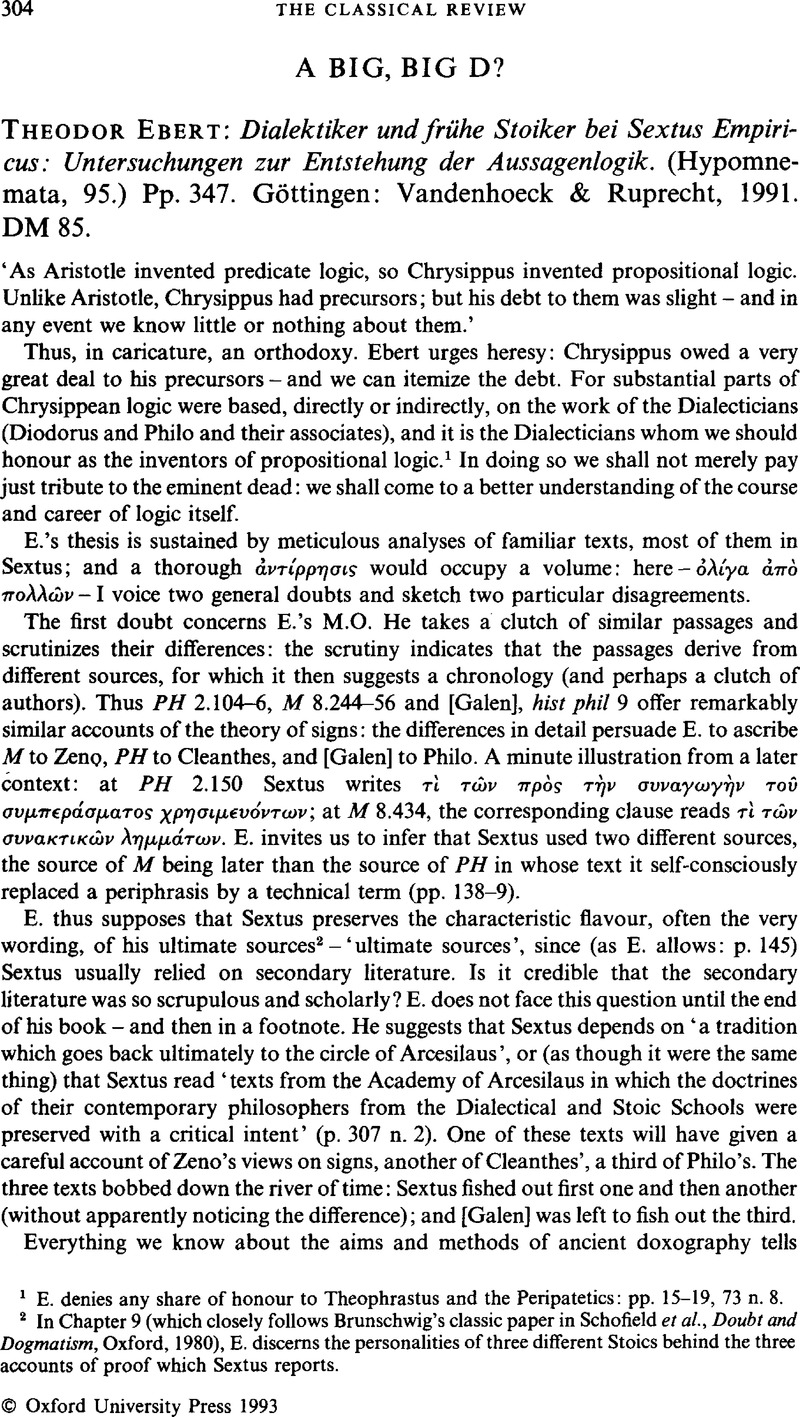Article contents
A Big, Big D? - Theodor Ebert: Dialektiker und frühe Stoiker bei Sextus Empiricus: Untersuchungen zur Entstehung der Aussagenlogik. (Hypomnemata, 95.) Pp. 347. Göttingen: Vandenhoeck & Ruprecht, 1991. DM 85.
Published online by Cambridge University Press: 16 February 2009
Abstract

- Type
- Reviews
- Information
- Copyright
- Copyright © The Classical Association 1993
References
1 E. denies any share of honour to Theophrastus and the Peripatetics: pp. 15–19, 73 n. 8.
2 In Chapter 9 (which closely follows Brunschwig's classic paper in Schofield et al., Doubt and Dogmatism, Oxford, 1980), E. discerns the personalities of three different Stoics behind the three accounts of proof which Sextus reports.
3 E. takes Janáček to have established that PH is prior to M (p. 300 n. 10); but he does not reveal that Janáček's arguments are based on a hypothesis which is incompatible with his own thesis. (For a list of Janáček's writings on Sextus see ANRW II.36.6, pp. 4298–9.)
4 But (p. 24 n. 38) he does not commit himself to Sedley's thesis that the Dialectical sect was an independent School (in some sense of the word) rather than a phase of the Megaric School, to which shadowy entity pre-Sedleians used to assign Diodorus and his chums.
5 [Galen], hist phil 9; Apuleius, int 12 (see below); anon., Prolog in Herm stat 295.21 Rabe (see p. 196 n. 17).
6 Usually – perhaps always – ‘Χ ⋯ διαλεκτικ⋯ς’ is parallel to e.g. ‘Χ ⋯ ῥητορικ⋯ς’ rather than to e.g. ‘Χ ⋯ Περιπατητικ⋯ς’. – I should note that doubts about the Dialectical School do not touch the main contention of Sedley's celebrated paper: whether or not Diodorus was a Dialectician (and the issue is of marginal significance), he was surely a consummate dialectician.
7 See pp. 181–2, where these two conjectures are presented as though they were the same. (The second is supported by a misreading of ἴσως at PH 2.245.)
8 E. takes this to be uncontroversial: I doubt it.
9 Except, it seems, for 2.108–9, which form a Chrysippean pocket in the text: p. 110 n. 3.
10 Which logicians originated the classification? Sextus' text gives no answer. But the orthodox view, that the Stoics are behind it all, is surely true.
11 209.14 M; i.e. the Peripatetics, pace p. 214 n. 2.
- 1
- Cited by


